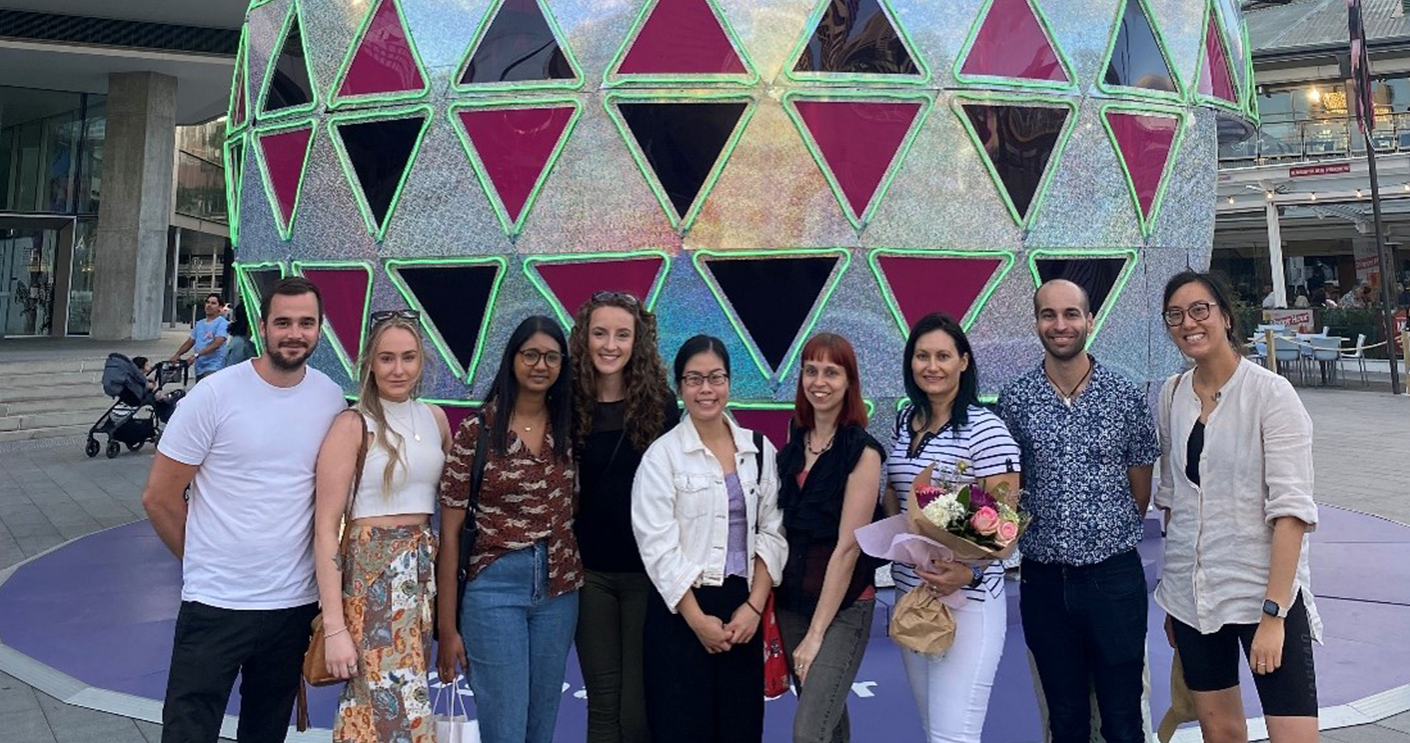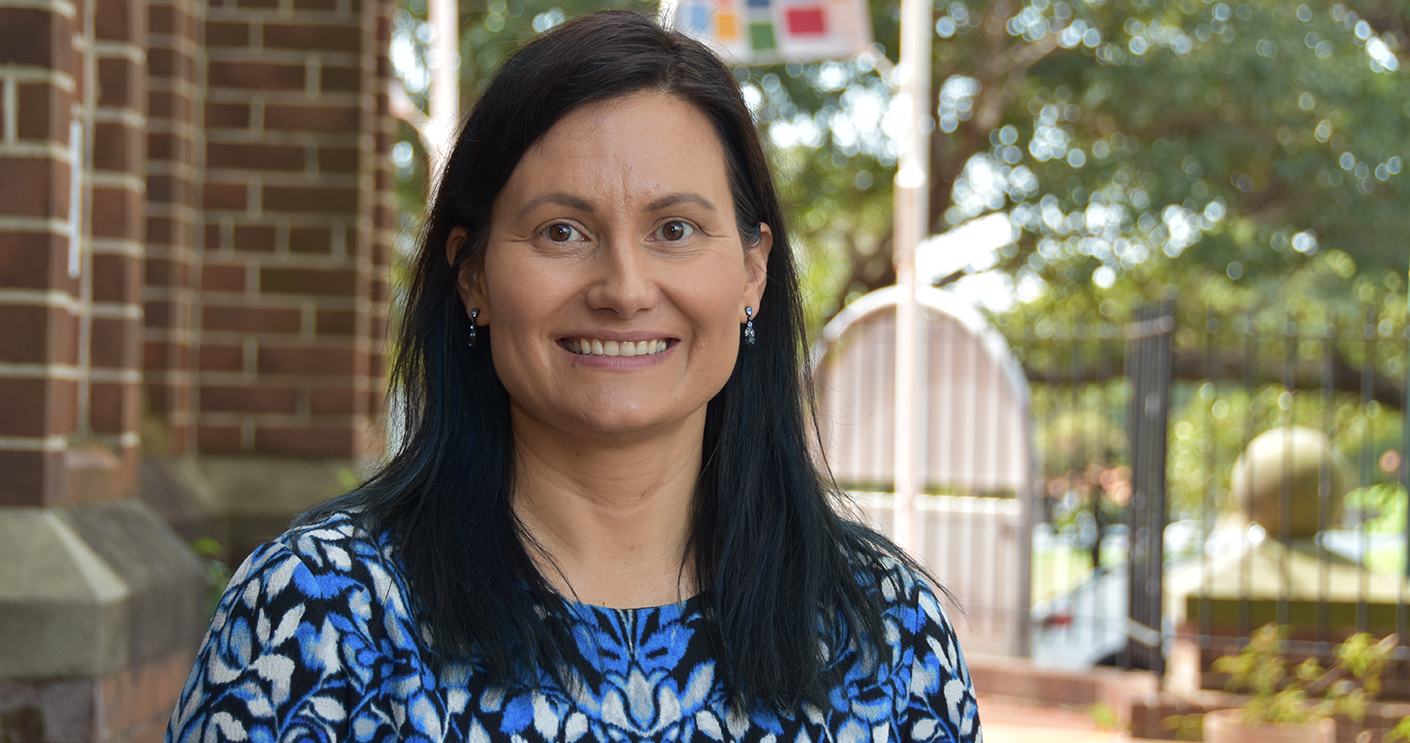Do you have ‘too much stuff’ and have trouble letting go? Meet Macquarie’s answer to Marie Kondo – just with more science to back up her recommendations.
Associate Professor Melissa Norberg is the Deputy Director for the Centre for Emotional Health at Macquarie and has done extensive research in the areas of anxiety, obsessive compulsive spectrum disorders and addiction.
More than the individual good, it’s about the greater good for Melissa’s research goals. She goes the extra step and delves into how object attachment can go awry to lead to overconsumption, overspending, hoarding disorder, and compulsive buying-shopping disorder. Melissa tackles societal issues she uses her knowledge about acquiring, saving, and behaviour change to help everyone consume less.
It wasn’t a straight path to this area of research, or Macquarie for that matter. Melissa grew up in rural Nebraska and originally set out to study journalism at university. Luckily for the many she has helped along the way, she changed her direction and decided psychology would be a better career for her.
After her Bachelor degree she moved to Wisconsin to complete her Masters and PhD in clinical psychology. After completing a clinical postdoctoral fellowship in Connecticut, she moved to Australia 14 years ago. Following stints at both Sydney University and UNSW, Melissa joined Macquarie in 2013. Then in 2019, she was elected National President for the Australian Association for Cognitive and Behaviour Therapy.
As well as the busy schedule that comes along with leadership, research, and teaching, Melissa sees clients at the CEH-Clinic. She says that she not only enjoys clinical work, but believes combining research and clinical work makes her a better educator.
1. Something you’d like staff to know about
This year I was invited to be a Brilliant Thinker for Vivid Sydney.
I’ll be presenting as part of the Vivid Ideas Exchange at an event on Saturday 4 June, talking about the science of ‘letting go’. Attendees will learn practical tips on how to combat the irresistible nature of possessions so that they take charge of their shopping habits and declutter sustainably and effectively.
It will also be interactive and those attending are encouraged to bring up five possessions they’re having trouble parting with despite knowing they don’t need them and then place them in either waste, recycling, or donation bins.
It might sound daunting to some, and that is why I encourage people to come along. The talk and workshop aims to help people build confidence so that they can save money, have less cluttered homes, and help the environment.
Thanks to Terracyle, Inspiring Australia, and the Centre for Emotional Health for sponsoring my involvement.
2. Something you feel proud of
Professor Derek Rucker from Northwestern University and I recently co-led a special issue on object attachment for Current Opinion in Psychology. The issue brings together experts from diverse fields to highlight what contributes to object attachment and its consequences. The issue does an excellent job of illustrating the usefulness of possessions as well as showing how a normal psychological process (object attachment) can go awry to lead to overconsumption, overspending, hoarding disorder, and compulsive buying-shopping disorder. This has helped me to use my clinical knowledge to help the broader population reduce overconsumption.
3. What you need to do your best work
Colleagues and leaders that support and elevate one another.
4. Something you’ve read recently that has had an impact on you
Fourteen, My Year of Darkness, and the Light that Followed by Shannon Molloy. This is a coming-of-age memoir that describes the difficulties of growing up and the callousness some have for those who are gay. I laughed and I cried and ended up with an even greater respect for journalist Shannon Molloy. Everyone should read this book.
5. A favourite photo from your camera roll
At the end of every year, my lab and I do something fun together. This is a photo of a time we went bowling at Darling Harbour at the end of 2020. I greatly enjoy celebrating my students’ accomplishments and socialising with them outside of a work environment. Building relationships with students is one of the best parts of my job.

6. Your definition of success
Success is persisting in the face of difficulty, but it’s also knowing when you should give up and try something else.
7. The first person you go to for advice (and why)
It depends on the issue. I rely on many people for advice. I wouldn’t be where I am today without the help of others.
8. A website or app you can’t live without (and why)
Zoom. No explanation needed.
9. Where you live and what you like about living there
After living in Australia for 13 years, my husband and I finally bought a house last year. Amongst other things, it’s been wonderful that the house has two rooms that my husband and I use as our offices. Zoom meetings would be awful if we had to share the same space. I also enjoy cleaning the house – for now anyway.
10. A personal quality you value in others
Conscientiousness


 Back to homepage
Back to homepage